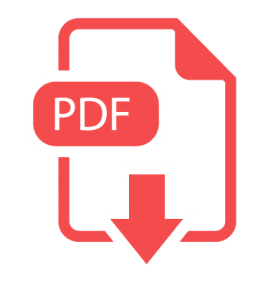AS REFORMAS DA ADMINISTRAÇÃO PÚBLICA NO BRASIL: DO PATRIMONIALISMO À NOVA GESTÃO PÚBLICA
Renato Pereira Monteiro
Pesquisador vinculado ao Research Center in Political Science and Administration (CICP).Doutorando em Contabilidade pela Universidade de Aveiro e Universidade do Minho em Portugal, Mestre em Contabilidade pela UNISINOS, São Leopoldo-RS (2012), Bacharel em Ciências Contábeis pelo Centro Universitário La Salle (2004), Contador do IFRS – Campus Porto Alegre.
Cleber Augusto Pereira
Pesquisador vinculado ao Research Center in Political Science and Administration (CICP).Doutorando em Ciências da Administração pela Universidade do Minho em Portugal, Mestre em Inteligência Artificial pela UFMA, Maranhão (2010), Bacharel em Ciências Contábeis pela Universidade CEUMA, Maranhão (1999), Professor Assistente na UFMA, Maranhão.
Neimar Sousa Pinto Pereira
Doutoranda em Ciências Empresariais pela Universidade do Minho em Portugal, Mestre em Administração e Controladoria pela UFC, Ceará (2010), Bacharel em Ciências Contábeis pela Universidade CEUMA, Maranhão (2005), Professora Assistente na UFMA, Maranhão.
Este estudo busca descrever os estágios da administração pública no Brasil ao longo dos anos, nomeadamente a gestão pública patrimonialista, a burocrática e a nova gestão pública (NGP). O estudo é relevante, pois permitiu evidenciar características e problemas de cada etapa, bem como a razão de seu surgimento. Nota-se que cada etapa surge como um processo de busca de melhoria do anterior. O patrimonialismo tinha problemas de não diferenciação entre o público e o privado, a burocracia problemas de ineficiência e a nova gestão pública ao final surge na tentativa de aproximar a administração pública às necessidade das pessoas, além de promover uma aproximação entre as práticas do setor privado na busca por melhor desempenho. Este estudo parte de uma robusta revisão da literatura para permitir identificar e descrever com clareza estas etapas.
Palavras-chave: Patrimonialismo. Burocracia. Nova Gestão Pública.
THE REFOMS IN PUBLIC ADMINISTRATION OF BRAZIL: PATRIMONIALISM, BUREAUCRACY AND NEW PUBLIC MANAGEMENT
ABSTRACT: This study aims to describe the stages of the government in Brazil over the years, including the patrimonial governance, bureaucratic and the new public management (NPM). The study is relevant because it has highlighted characteristics and problems of each stage, as well as the reason for their appearance. Note that each step appears as a search process of improving the previous one. Patrimonialism had problems of non-differentiation between the public and the private, bureaucracy problems of inefficiency and new public management at the end arises in trying to bring the government the need for people, and to promote a closer relationship between the practices of the private sector in the search for better performance. This study is part of a robust literature review to help identify and clearly describe these steps.
Keywords: Patrimonialism. Bureaucracy. New Public Management.

